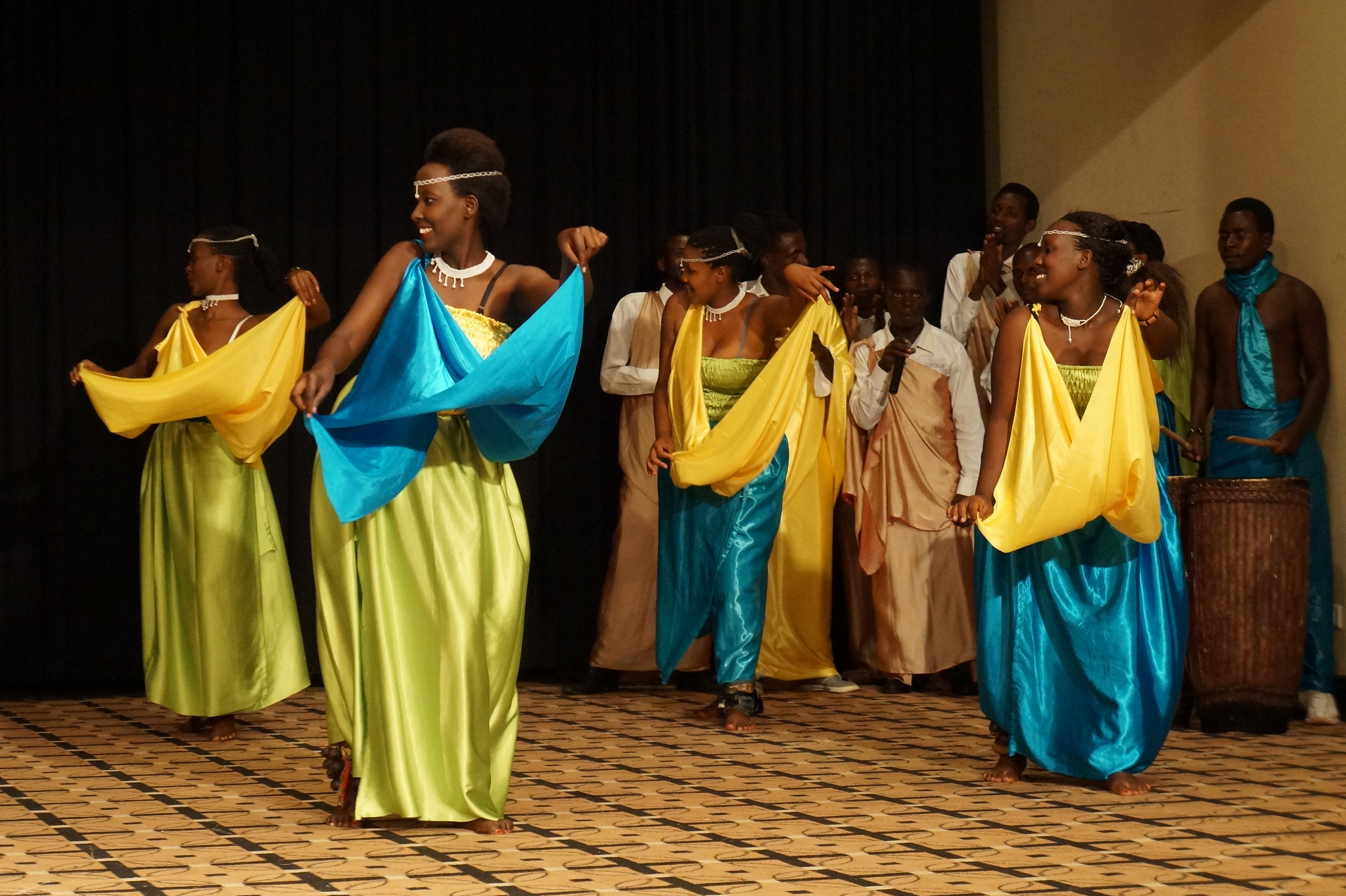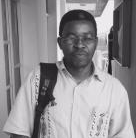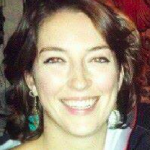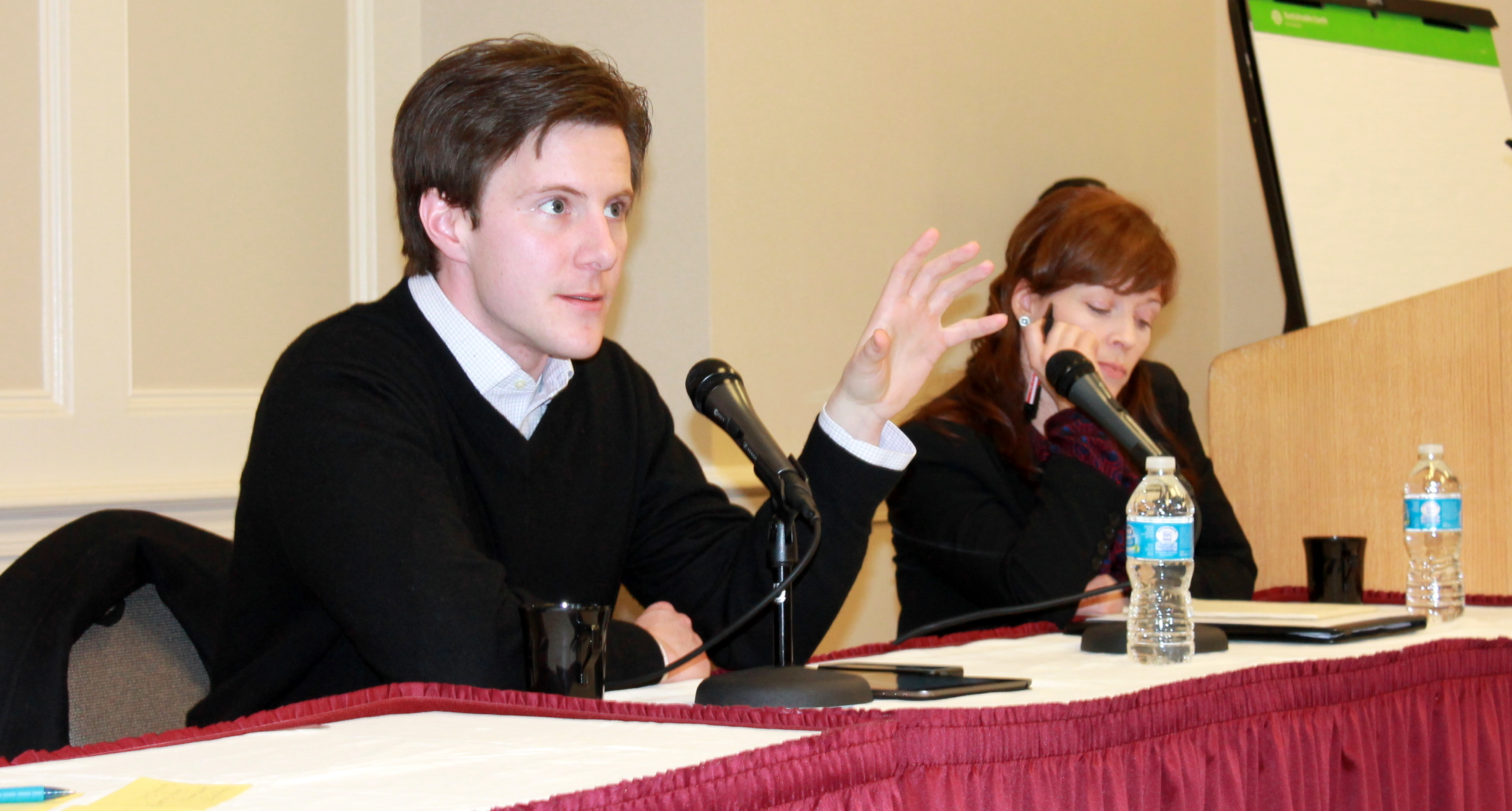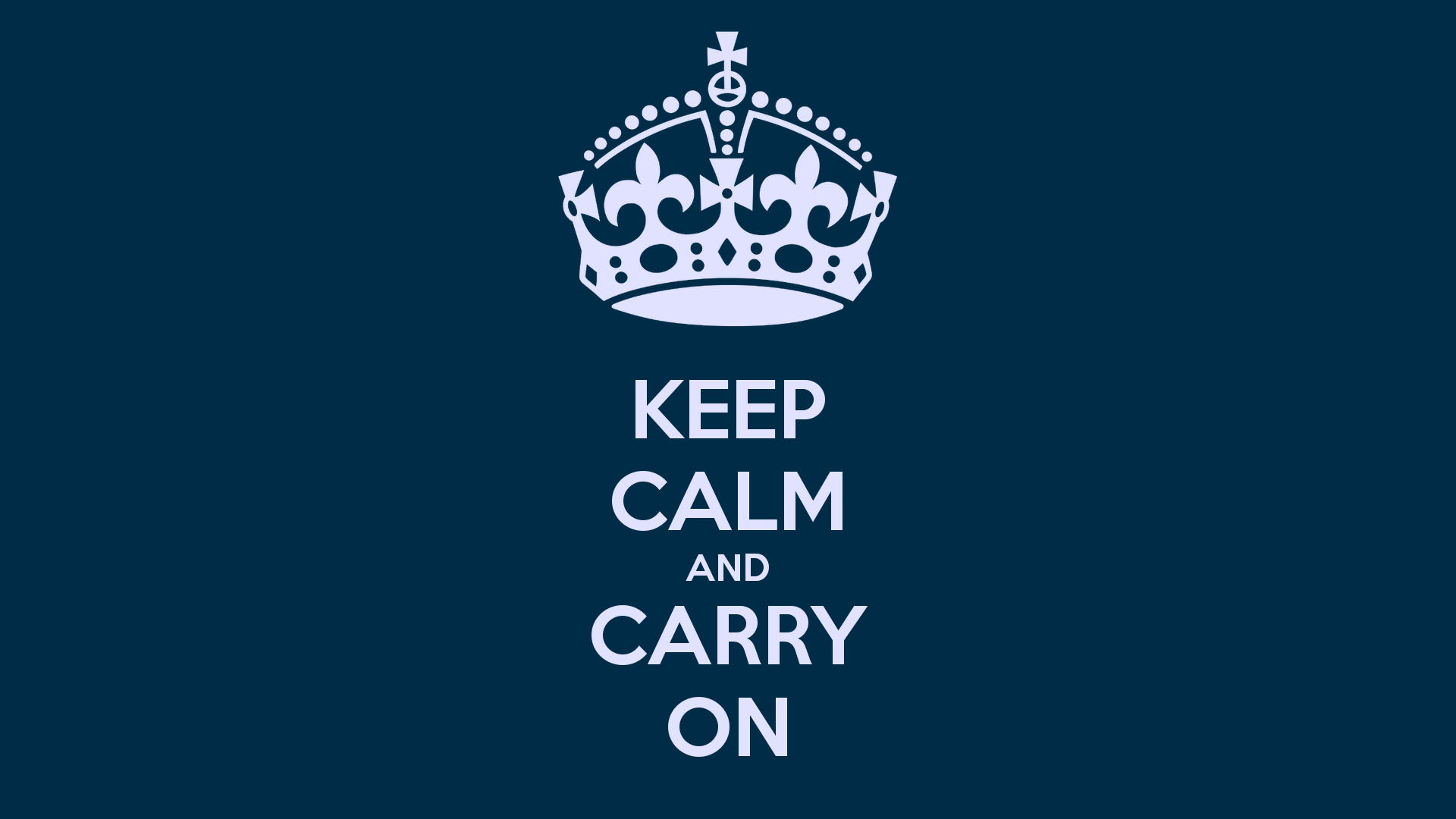By Innocent Hitayezu and Ella Duncan
How can peacebuilding programs get a better understanding of trust? This question is at the heart of Innocent Hitayezu’s work with women and issues of reconciliation, and continues to shape his work as a peacebuilder and evaluator in Rwanda.
Innocent was working with a reconciliation project that brought together widows of victims of the Rwandan Genocide with widows of perpetrators of the genocide when he questioned, How do we know we are bringing community relationships to the next level? During group discussions and interviews, he asked the women if they were working together outside of project activities, and the group replied positively that, yes the project was changing their interactions and attitudes in daily life. However, during individual interviews, he found that some women were still experiencing extreme challenges of reconciliation and that outside of the mandatory group meetings these two groups were not coming together. Individual interviews showed that the project was not building trust in the community in the long term. To Innocent, this moment demonstrated that the power of group level projects could be better harnessed with the inclusion of reflective monitoring and evaluation on the individual level subsequently having positive effects on entire family and community at large.
Innocent works at the community level to examine the root causes of conflict in Rwanda, and on the issue of post-conflict intercommunal trust. Innocent’s work explores how new approaches to monitoring and trust-measuring evaluations can strengthen programs aimed at traditional community building through reconciliation and those focusing on the peaceful reintegration of former refugees.
Innocent’s own experience as a refugee sparked his passion for community building and trust building. In 1994, to escape the war, he and some of his family members fled Rwanda to the Democratic Republic of Congo. Upon returning to Rwanda the family faced the suspicion and distrust of those who had stayed behind and experienced the genocide. In search of community, Innocent joined with other repatriated refugee youth to create support systems for community action and economic opportunity through informal youth symposium.
This youth-led community building has been the foundation of his life’s work building peace in Rwanda through inclusive community development. Innocent says, “in some families, People are taught that communities are divided, but they must fight to say instead that ‘Rwanda is for all of us.’’
It is this conviction that reconciliation processes, in Rwanda and elsewhere, must be inclusive that inspired Innocent to pursue a career in Monitoring and Evaluation. Digging into the root causes of conflict, and extensively measuring trust within communities led Innocent to question, “Where is our evidence that we are making positive change?” Innocent, like many others in his field, believes that peacebuilders must be able to demonstrate success.
In the two decades since the Genocide, Rwanda has made great progress toward stabilization. As a result, Rwanda is often cited as a model of stability and security in East Africa. Rwanda’s security has come through traditional methods of community justice and reconciliation such as the Gacaca, a community court system, and Umuganda, which roughly translates to “coming together in a common purpose to achieve an outcome,” which is observed through a nationwide monthly day of service. Innocent believes that these traditional group based reconciliation methods can be strengthened through modern monitoring and evaluation methodologies. This is because traditional community-based methods are focused on the group level, which may miss tensions and challenges that participants are hesitant to express in front of their peers. In response to this challenge, Innocent advises that group reporting be validated by individual reporting, to make sure minority voices have an opportunity to be heard in the process of evaluating, and designing programs.
Giving space to individual voices also helps a program remain vigilant to the concept that progress should come from within the community, and that no pressure is applied from the top-down.
Based on his experience, Innocent sees individuals’ ability to express their views as an important indicator that communities are healing and maintaining peace. For Innocent, monitoring self-expression is key to understanding what is happening at the community and individual level.
Innocent is proud of the progress of reconciliation in Rwanda, and of the power and strength communities have drawn from traditions like the Gacaca and Umuganda. He is also hopeful that new approaches to reconciliation will help community trust and open expression continue to grow, enabling communities and individuals to build a lasting peace.
* * *
Innocent Hitayezu is a peacebuilder and evaluator living and working in Kigali, Rwanda. He has over 13 years of experience, including consultancy work in sustainable agriculture, socio-economic assessment, strategic planning, market research and consumer behavior analysis, farmers’ trainings; 8 years working with International NGOs. He holds an MBA in NGO Management from Kampala International University (Uganda), a Bachelor’s Degree in Sociology; and a Diploma in Philosophical and Religious studies.
Ella Duncan is the DME for Peace Project Manager, DME for Peace is a project of Search for Common Ground which connects a growing global community of over 4,000 members to over 800 resources on Design, Monitoring, and Evaluation for Peace and Peacebuilding programming. Ella received her B.S. from Cornell University.
This post originally appeared on DME for peace.
Featured image credit: Leandro Neumann Ciuffo Creative Commons License

